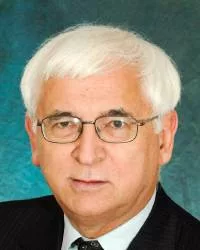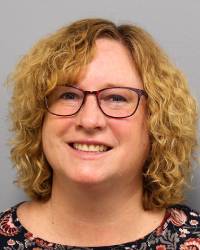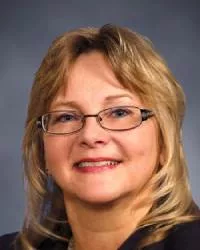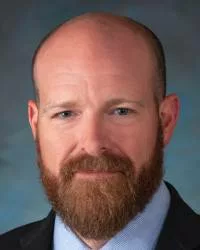Know Your Class Representatives
These School of Medicine and Public Health MD Program graduates are hoping you'll join them at an upcoming class reunion.
What have graduates of the University of Wisconsin School of Medicine and Public Health been up to? Three ophthalmologists shared their stories with Quarterly magazine.
Following medical school and an internship, I completed an ophthalmology residency at the Bascom Palmer Eye Institute in Miami. I then completed a vitreoretinal surgery fellowship at the Medical College of Wisconsin in Milwaukee and an ocular oncology fellowship at Wills Eye Hospital in Philadelphia.

I have been involved in academic ophthalmology for my entire career, and currently I am the Cless Family Professor of Ophthalmology, vice chair for education, head of ocular oncology, and director of the Vitreoretinal Fellowship Program at the University of Illinois at Chicago. My interests are in the diagnosis and management of complex retinal diseases and ocular tumors, as well as vitreoretinal surgery.
During medical school, I became fascinated with the eye, and during my residency, I began to focus on the retina. Advances in technology for microsurgical intervention and pharmacologic treatment of many conditions have been astounding. Over the years, I have had the opportunity to work with many great ophthalmologists at wonderful academic institutions. This has led to authorship of 370 scientific papers, 88 book chapters, and seven textbooks, including most recently Macular Surgery (2019).
I have presented 28 named lectures, participated in more than 60 scientific grants and collaborative studies, and been a co-investigator on National Institutes of Health funded studies. I served as chair of the American Board of Ophthalmology and president of the Association for Research in Vision and Ophthalmology. I am a member of the board of trustees for the American Academy of Ophthalmology, and serve on the council for the American Ophthalmological Society.
My wife, Jennifer J. Kang-Mieler, PhD, is a biomedical engineer, and we have conducted numerous collaborative research projects dealing with ocular drug delivery. While I have not been back to Madison for a few years, I always monitor UW–Madison activities. Go Badgers!
For the past 16 years, I have been practicing ophthalmology in an independent practice located in West Allis, Wisconsin. I started as an employee of the practice and am now the majority owner.

I am thankful that the University of Wisconsin School of Medicine and Public Health allowed us to experience ophthalmology as a clinical rotation during medical school. I knew that I wanted to pursue a specialty with a surgical component and quickly realized that ophthalmology would offer a great mix of clinical, surgical and technology elements.
During my ophthalmology residency at Saint Louis University, I decided to pursue general ophthalmology with a focus on cataract surgery. It has been an honor to help patients have a better quality of life through improved vision. The constantly improving technical advances in cataract surgery have kept the field exciting.
Daily, I see a wide variety of patients — from those who come to the clinic for everything from routine, healthy exams for glasses to those who are severely ill with ophthalmologic manifestations of systemic diseases. Because my practice is located in a hospital, I see a wide variety of emergent eye issues referred from primary doctors’ offices, the emergency room and the inpatient wards. This allows me to have a mix of autonomous practice and collaboration with other physicians.
One of my most memorable patients is someone who I diagnosed with a brain tumor at age 6. Fortunately, I have been able to see her heal, grow and thrive for the past 12 years.
I have memberships in national and local ophthalmology organizations to help keep me up to date on the practice of and politics surrounding medicine. For me, the field of ophthalmology has allowed an awesome mix of practicing medicine, owning a business and maintaining a work-life balance.
After I completed an internal medicine internship and ophthalmology residency at UW Health, I moved back to my hometown, Platteville, Wisconsin, and have practiced ophthalmology in a community hospital for 21 years. I first practiced with Davis Duehr Dean in Platteville, Lancaster and Dodgeville. Since Dean was sold to SSM, I have worked for Southwest Health Center in Platteville and continue to care for many of the same patients.

I have a comprehensive practice, and the majority of my surgical cases are cataracts. This type of surgery has become refractive in nature. We correct astigmatism with toric lenses, and multifocal Ienses are able to give patients good near and distance vision. I also do various glaucoma surgeries.
I have had amazing experiences when I operated in India, the Philippines, Kenya, Brazil, Kosovo and Belize. My most memorable case, as a senior resident, was when I was teaching phacoemulsification to a Filipino ophthalmologist and the case got complex, requiring teamwork to finish it. We had to improvise making and modifying instruments as we went. The patient had a great outcome. It was truly a case of “see one, do one, teach one.” Serving those less fortunate really puts everything into perspective and outlines why I went into medicine. Operation Blessing and the Mercy Ships are great organizations.
I’m a fellow of the American Academy of Ophthalmology and a member of the Christian Ophthalmology Society.
While I had considered various specialties, I chose ophthalmology because I wanted to serve people of a variety of ages and provide both medical and surgical care. I also needed work-life balance because I started medical school with two sons under age 5, and I had a daughter while I was in medical school. Now that our children are grown, we have been blessed with 10 grandchildren. I encourage medical students to pursue the desires of their hearts because we spend so much time at work. I think ophthalmology is a great opportunity to be a blessing to patients by restoring or preserving their sight. We take a lot of things for granted in the United States, but cataracts are still the leading cause of blindness in the world.
I am a comprehensive ophthalmologist in Phoenix, Arizona. I am currently the solo surgeon and run a private practice that has three locations and 22 wonderful staff members. I handle mostly cataract cases with some oculoplastics, glaucoma and cornea cases.

During my last call, I provided care for an 18-year-old high school student who had developed a traumatic cataract. Following surgery, his vision was restored. He is back to being a full-time student.
I had no plans when I finished my second year of medical school. I was randomly placed on a neurology rotation and ended up spending a week doing ophthalmology. I chose the specialty because I enjoyed the surgeries, my time in clinics, and the potential to work overseas curing blindness. I did my ophthalmology residency at UW Health.
I just completed a year as president of the Phoenix Ophthalmological Society. I am a senior member of the Arizona Ocular Trauma Service that staffs 10 hospitals and five level 1 trauma centers. I serve as the medical director for my ambulatory surgery center. In 2017, I started a nonprofit, The Biltmore Eye Project, that travels overseas. To date, we have made trips to operate in Peru and the Dominican Republic.
I tell prospective students that ophthalmology is a tremendous career choice and has been more rewarding than I could have ever imagined.